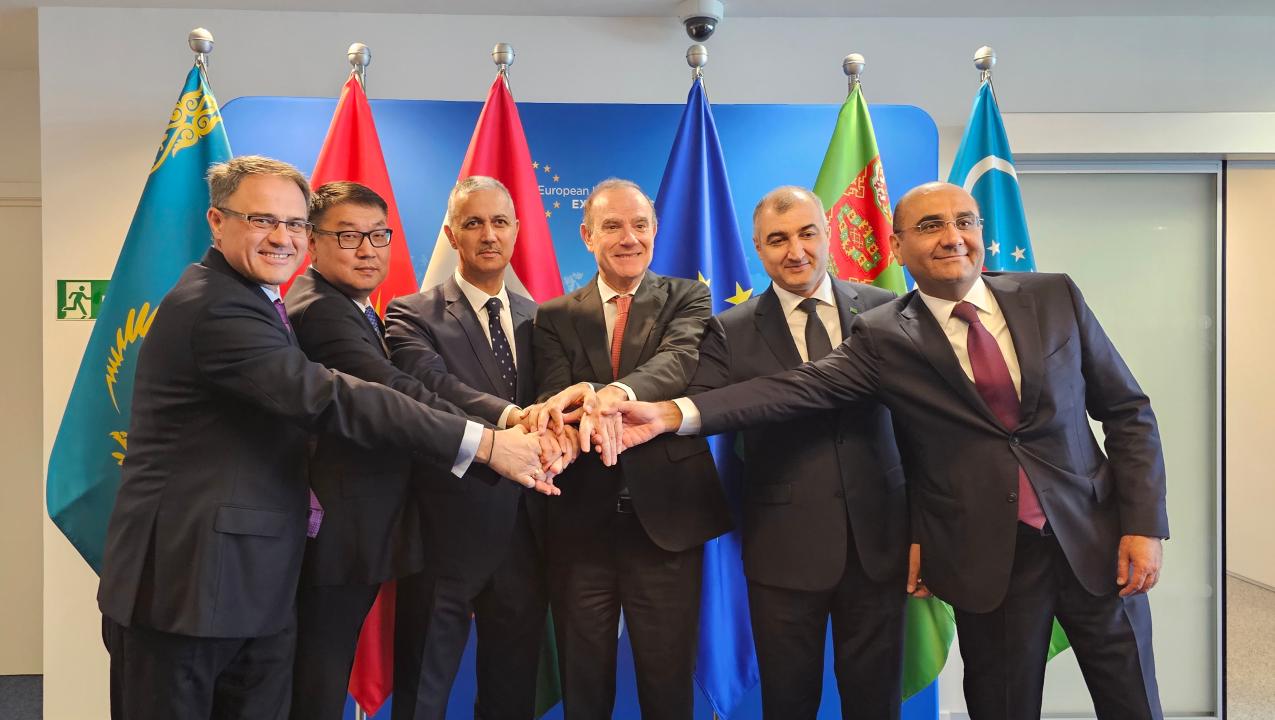ASTANA—The European Union (EU) headquarters hosted the 11th Meeting of the High-Level Political and Security Dialogue between Central Asia and the EU on June 5 in Brussels to discuss regional security, interregional cooperation, and the international agenda, reported the Kazakh Foreign Ministry’s press service.

Photo credit: gov.kz
Deputy foreign ministers of Central Asian countries and Deputy Secretary-General and Political Director of the European External Action Service (EEAS) Enrique Mora reviewed the progress of the Joint Roadmap for Deepening Ties between Central Asia and the EU.
The participants examined transport, trade, economic, energy, and climate relations, as well as common security challenges related to the situation in Afghanistan.
Kazakh Deputy Foreign Minister Roman Vassilenko presented several initiatives to enhance interregional cooperation with the EU, which are expected to bring new dynamics to energy, trade, and water resource management.
Vassilenko highlighted Kazakhstan’s priorities during its chairmanship of the International Fund for Saving the Aral Sea (IFAS), announcing a program for continuous monitoring of the basin ecosystem over the next three years and the creation of a mechanism for long-term intra regional cooperation on the Aral issue. He called for synchronized efforts for effective irrigation, water and energy facility operations, and environmental measures.
The deputy minister noted that Central Asia and the EU have a wide range of partnership tools, including sectoral platforms, trust-based political dialogue, and institutional mechanisms, which are essential for achieving new qualitative indicators in trade, transport, exports, energy, and cross-border development. He pointed out the increasing export-import operations across the region and the creation of large regional projects that change Central Asia’s economic landscape.
Vassilenko informed that Kazakhstan is preparing to host the sixth Consultative Meeting of the Heads of Central Asian States in 2024. At this meeting, the country plans to present the region’s cooperation priorities, which aim to strengthen the region’s international subjectivity and expand opportunities for enhanced interregional cooperation with the EU.
Vassilenko also briefed on the results of the first meeting of the Secretaries of the Security Councils of Central Asian nations with President Kassym-Jomart Tokayev in May, noting its potential to become an effective platform for preventing challenges and threats, as well as developing necessary response strategies in the region.
Emphasizing the importance of educational initiatives, human capital advancement, and fostering professional networks in interregional cooperation, Vassilenko thanked the European counterparts for organizing the recent inaugural training for diplomats and officials from Central Asian countries at the College of Europe.
Enrique Mora noted the steady progress in cooperation between Central Asia and the EU, with the Joint Roadmap for Deepening Ties already being implemented. He stressed the region’s major environmental challenges related to climate change and security issues in Afghanistan, reaffirming the EU’s support in addressing these challenges.
Vassilenko also discussed regional security, strengthening borders, countering terrorism, and the progress of interregional security programs with Terhi Hakala, the EU Special Representative for Central Asia, Tomas Niklasson, the EU Special Envoy for Afghanistan, Nadia Constantini, the EEAS Special Envoy for Counter-Terrorism, and Bartjan Wegter, the EU Counter-Terrorism Coordinator.
The deputy minister participated in a discussion hosted by Euractiv, a pan-European media network, on the drivers for increased economic and trade cooperation between Kazakhstan and the EU. The event focused on promising trade and economic cooperation areas, existing obstacles hindering their development, and proposals to eliminate these barriers.
